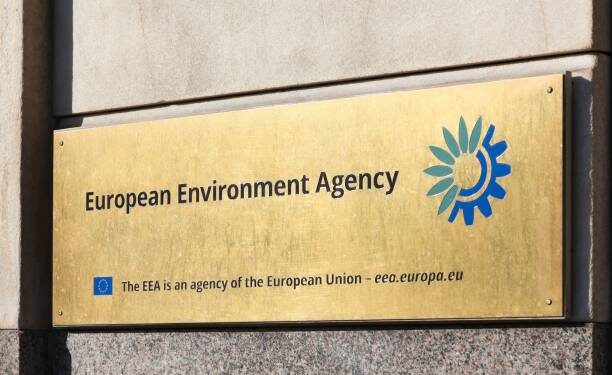Let us begin by saying that we should feel privileged to belong to the European Union. This is not because we share a flag or common governing bodies, but because of the experiential benefits it brings. EU laws and regulations take people into account far more than those of many other regions or countries. The Union works to enhance quality of life—both for its citizens and for the environment we all share. The number of laws and initiatives serving this purpose is vast, many of them largely unknown to the general public. This article is devoted to one such initiative.
It is an initiative that, for reasons unknown, remains underappreciated or seldom consulted. Yet it offers a constantly updated portrait of the realities of Europe’s environment. We refer to the European Environmental Bureau (EEB). Visiting its website, one is greeted with an appeal: “Help us build a better future where people and nature thrive together.” This call for a renewed interaction between people and nature is, in itself, deeply meaningful—especially in an age when nature is often reduced to a mere resource (economic, artistic, recreational, culinary, or proprietary). But to thrive does not mean to grow endlessly; it means to (re)establish some of the basic interactions that sustain life.
Nature is the lifeblood of society, yet social life often exerts unsustainable pressure on nature, as if it had no limits. Despite its vastness, variability, and daily presence, nature is extraordinarily complex in its functioning—and extremely vulnerable. Let us therefore introduce the EEB by drawing upon the arguments presented on its own website, citing its words directly when appropriate. The Bureau deserves to be featured in The Diplomat in Spain for both its values and the influence it may exert on civic and institutional governance.
The EEB is the largest network of environmental citizens’ organisations in Europe. It currently brings together more than 190 organisations in 41 countries, including an increasing number of networks, and represents around 30 million members and supporters. These are people united by a simple yet difficult goal: to ensure that nature and its vast, intricate biodiversity can function freely.
The Bureau’s mission is clear: to strive for a future in which nature and Europeans coexist harmoniously; to ensure that Europe’s identity is defined by the values of freedom, fairness, respect, integrity, and sustainability; and to rely on a shared sense of civic commitment.
The EEB, which also highlights the role of coalitions such as Green10, explains on its website that its distinctiveness lies in the fact that:
-
It covers an exceptionally broad range of environmental policy issues, while remaining open to all genuine NGOs active in the environmental field.
-
It seeks to provide both leadership and unity within the European environmental movement, thereby ensuring a strong voice in EU and international policy processes.
The Bureau also stands out for the quality and depth of its publications, which include reports, policy papers, and statements addressing social and ecological issues. It dedicates a prominent space to news on ecosocial concerns, with recent stories covering topics such as extensive livestock farming, water protection, environmental risks from animal waste, the weakening of EU nature protection laws, the erosion of the European Green Deal by the Commission (which has granted member states greater legislative leeway), and the limited engagement of the European Parliament in enacting environmental protection laws.
Other recent pieces address issues such as fish contamination by toxic residues, dangerous ozone thresholds in air quality, the risk that EU environmental efforts could derail following trade agreements with the United States, legislative loopholes threatening the EU’s clean air target for 2040, the inability of member states to steer the automotive industry toward a circular economy, and the slow progress of strategic projects in the ecological transition. This list offers only a glimpse of the EEB’s many concerns. Readers will almost always find a story that touches on the environmental risks or challenges that matter to them. The site even allows searches by topic filters, making it easy to navigate and explore.
Its sections cover a wide array of European and global environmental issues, including agriculture, nature, air and noise pollution, global and regional policies, European institutions and governance, environmental law and justice, zero-pollution industry, climate and energy, economic transition, and circular economy. These working areas provide a solid foundation for addressing any environmental issue of concern to policymakers, companies seeking greater sustainability, or NGOs affiliated with the EEB. They also serve as a valuable database for media outlets maintaining a strong environmental focus.
At present, the EEB has directed much of its energy toward supporting the Global Sumud Humanitarian Flotilla for Gaza, consistent with its enduring advocacy of collective ethics. The Bureau also invites readers to subscribe to its latest news, particularly through New Leaf, the EEB’s dedicated news channel. It maintains several other essential communication platforms for staying informed on ecosocial issues that particularly affect Europe—a continent defined, ethically and structurally, by a complex environment in need of careful governance.
Carmelo Marcén Albero
Ecosocial researcher and analyst at Fundación Alternativas
Teacher and PhD in Geography. He has served as a primary, secondary, and teacher training educator. Author of numerous articles and studies on the environment and education, published in specialized journals such as Cuadernos de Pedagogía, Investigación en la Escuela, and Aula de Innovación Educativa.
Recipient of Spain’s National “Education and Society” Award in 1992 and 1993 for his didactic proposals on the lived experience of rivers and landscapes. Author of several books on these subjects. Research associate at the Department of Geography, University of Zaragoza, and at the Fundación Alternativas (Madrid). Member of the Ecodes Council (Fundación Ecología y Desarrollo).







